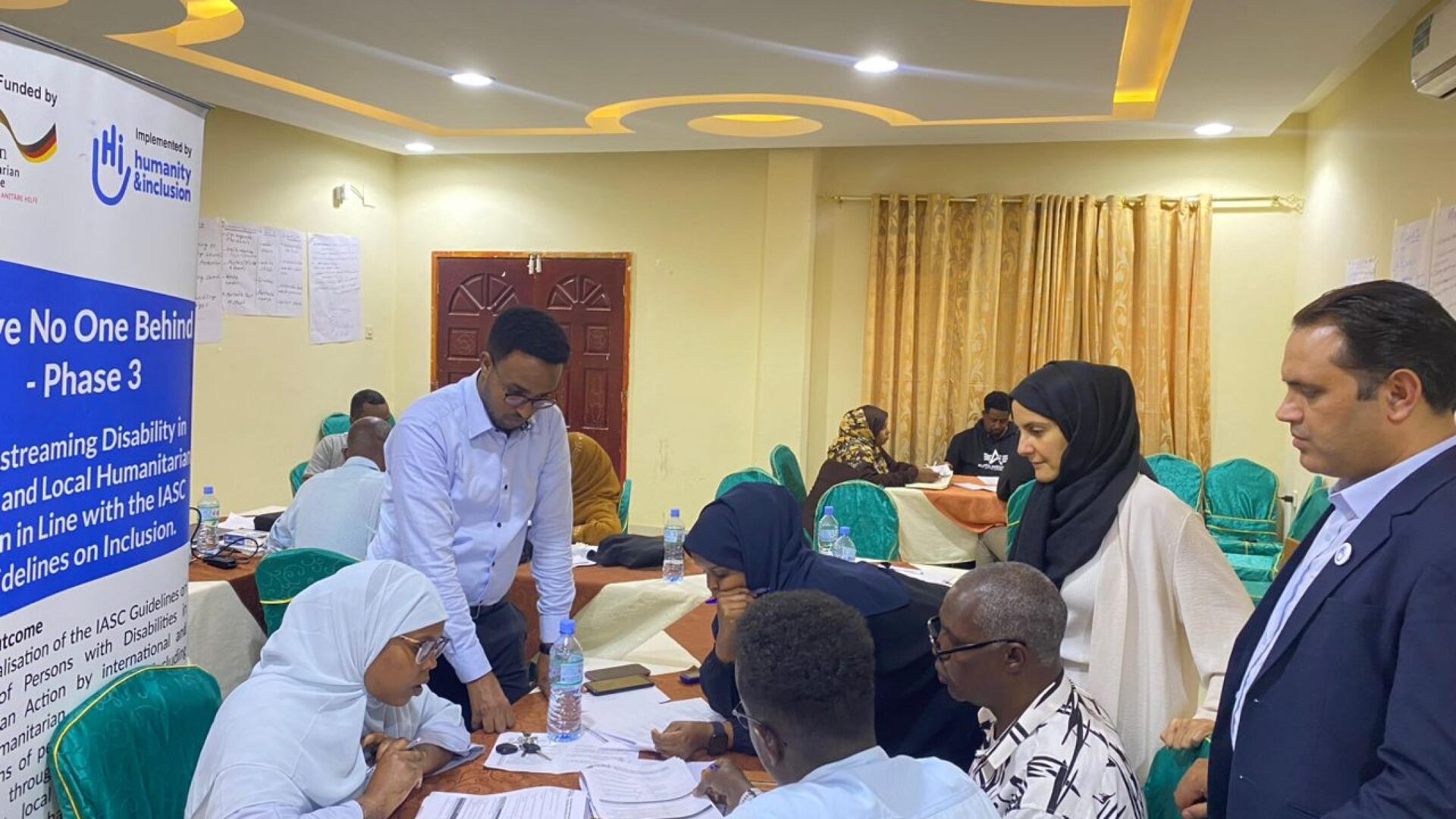Strengthening disability inclusion in line with the IASC guidelines: training of trainers in Somalia and Somaliland
Kategorien
Capacity Building IASC-Guidelines Pilot Countries
© © HI/Abdishakur Abdulahi
From July 2nd to July 4th and July 8th to July 10th, 2024, Humanity & Inclusion project team conducted a three-days Training of Trainers for members of the Somaliland Disability Inclusion Task Force (SDITF) and Somalia Interagency Disability Inclusion Task Team (SIDITT).
Background
The SDITF and SIDITT consist of technical experts responsible for providing technical support, capacity building, and coordination on disability-inclusive humanitarian action within their respective organizations and the broader humanitarian community. Both groups operate under the Disability Inclusion Working Group (DIWG) and sub-protection Cluster from both Somalia and Somaliland.
Training of trainers
The Training of Trainers was targeting the members of SDITF and SIDITT who had not attended previous Review, Adapt, Action and Learning Laboratories, introducing a right-based understanding of disability inclusive humanitarian action. The training enhances the facilitation skills and techniques of SDITF and SIDITT members to train other humanitarian actors on disability-inclusive humanitarian action, aligned with the IASC Guidelines.
Participants learned and practiced effective facilitation methodologies, including interactive and participatory approaches. They acquired skills to deliver impactful and inclusive training sessions that promote understanding and actionable steps toward disability inclusion. By enhancing their facilitation skills, participants are better prepared to disseminate knowledge and best practices, ultimately increasing the adoption of disability-inclusive approaches among other humanitarian actors.
Making assessment tools inclusive
The training also aimed at increasing the understanding of SDITF and SIDITT members in reviewing, adapting, and identifying existing gaps in rapid needs assessment tools used during emergencies such as floods, droughts, or other disasters in Somalia and Somaliland.
Participants explored strategies to ensure disability inclusiveness in the assessment process by integrating specific questions and indicators related to disability. They gained insights into the unique challenges faced by persons with disabilities during emergencies and acquired skills to collect accurate and comprehensive data on their specific needs.
By strengthening the disability inclusiveness of rapid needs assessment tools, participants contributed to a more accurate understanding of the impact of disasters on persons with disabilities, enabling targeted and effective response efforts.
Results of the training
Participants gained a comprehensive understanding of the rights-based approach of disability, and the principles of inclusive humanitarian action as outlined in the IASC Guidelines. By grounding their work in a human rights framework, participants are better equipped to advocate for and implement disability-inclusive practices in their respective organizations and coordination efforts.
Testimony from a participant
The three days training of trainers marked a significant step, as the knowledge and skills received will help us strengthening disability inclusion by applying what we achieved from training and use the IASC Guidelines as guiding book towards our programing. This training has empowered us to drive positive change, ensuring that persons with disabilities receive equal access to humanitarian assistance and protection.
Article written by Aden Ismail, Inclusive Humanitarian Action Project Officer